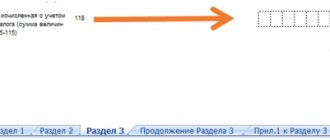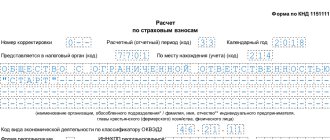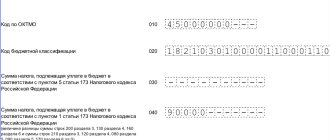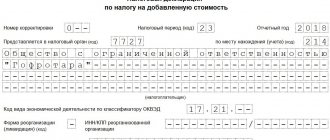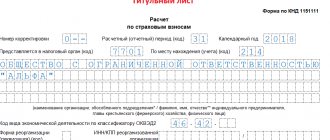Tax under the simplified taxation system (STS)
The simplified taxation system, or simplified tax system, is a tax regime that is suitable for small and medium-sized businesses. To switch to it, an organization must fulfill a number of conditions: the share of other organizations in it cannot exceed 25%, it must not have branches, and its income must not exceed 112.5 million rubles. in year. Payment of contributions under the simplified tax system does not relieve the taxpayer from fulfilling obligations to calculate, withhold and transfer income tax from employee salaries. The simplified tax system assumes the following rates:
- Income – 6%, however, constituent entities of the Russian Federation can, depending on the category of taxpayer, reduce the tax burden to 1%
- Income reduced by the amount of expenses - 15% , the possibility of reduction to 5% by individual subjects of the Russian Federation
- Income in the territory of Crimea and Sevastopol - can be reduced to 3% for 2017-2021
- Income of individual entrepreneurs who provide services in the social, scientific, industrial spheres - 0% for 2 tax periods
Individual entrepreneurs make contributions under the simplified tax system at their place of residence, and organizations - at their location. The advance payment must be made no later than 25 days from the end of the reporting period. Organizations must submit tax returns no later than March 31, and individual entrepreneurs no later than April 30. The tax is paid at the end of the year until March 31 or April 30, respectively. If the last day of payment falls on a holiday or weekend, you can make the payment on the next working day.
What is the penalty for being late in reporting and paying taxes?
For failure to submit (late filing) a “profitable” declaration, the following sanctions are established:
1) for late submission of annual reporting, a fine is imposed in the amount of 5 percent of the amount of tax not paid on time, subject to payment under this declaration, for each full or partial month that has passed from the day established for submitting the declaration until the day on which it was submitted presented. In this case, there cannot be a fine (clause 1 of Article 119 of the Tax Code of the Russian Federation, letter of the Ministry of Finance of the Russian Federation dated August 14, 2015 No. 03-02-08/47033):
- more than 30 percent of the unpaid tax amount due on a late declaration;
- less than 1,000 rubles (the same fine will be for late submission of a “zero” declaration).
2) for being late with a declaration for the reporting period (Q1, half-year, 9 months or one month, two months, etc.) you will be fined 200 rubles for each declaration not submitted on time (clause 1 of Article 126 of the Tax Code of the Russian Federation, letter of the Federal Tax Service of the Russian Federation dated August 22, 2014 No. SA-4-7/16692);
3) a company official may be fined in the amount of 300 to 500 rubles (Article 15.5 of the Code of Administrative Offenses of the Russian Federation).
As a general rule, the official is the head of the organization, but it can also be another employee (for example, a chief accountant), who, by virtue of an employment contract or internal regulation, is responsible for submitting tax reports to the Federal Tax Service;
If you are late with your annual declaration within 10 days, your company account may also be blocked. However, such a measure does not apply if the advance payment is submitted late (Determination of the Armed Forces of the Russian Federation dated March 27, 2017 No. 305-KG16-16245, letter of the Federal Tax Service of the Russian Federation dated April 17, 2017 No. SA-4-7 / [email protected] ). Therefore, the Federal Tax Service does not have the right to block an account if the deadline for submitting reports for 9 months is violated.
Penalties are charged for missed deadlines for payment of advance payments and income tax.
If non-payment of tax occurred due to an error that led to an underestimation of the tax base for profits, then in this case the organization faces a fine in the amount of 20 percent of the amount of arrears (clause 1 of Article 122 of the Tax Code of the Russian Federation):
To avoid this fine, you need to submit a “clarification”, but before that you need to pay the arrears and penalties (clause 4 of Article 81 of the Tax Code of the Russian Federation, letters of the Ministry of Finance of the Russian Federation dated September 13, 2016 No. 03-02-07/1/53498, Federal Tax Service of the Russian Federation dated 11/14/2016 No. ED-4-15/ [email protected] ).
Unified tax on imputed income for certain types of activities (UTII)
The single tax on imputed income, or UTII, is a tax that must be paid when conducting certain types of activities. When calculating it, the amount of income does not matter, since taxpayers are guided by the level prescribed in the Tax Code of the Russian Federation. UTII is applied for the following types of activities:
- Catering
- Retail
- Veterinary and household services
- Vehicle maintenance, repair and washing services
- Parking lots
- Transportation of passengers and cargo
- Transfer of land plots or retail spaces for rent
- Placing or distributing advertising
- Organizations of temporary accommodation or residence
UTII cannot be applied if the activity is organized within the framework of an agreement on joint activity or trust management of property. It is also not paid by taxpayers from the largest category and those organizations that employ more than 100 people. UTII is not paid by individual entrepreneurs on the simplified tax system based on a patent, as well as by budgetary healthcare and social security organizations.
The object of taxation is potential income. It is calculated taking into account all factors that may influence its size. The tax period is a quarter. The single tax rate is equal to 15% of the amount of imputed income. It must be submitted no later than the 25th day of the month, which is the first of the next tax period. The tax return must be filed by the 20th day of the first month following the closed tax period.
Patent tax system (PTS)
The patent taxation system is a system that is regulated by regulations of individual constituent entities of the Russian Federation and is applied exclusively in their territories. Taxpayers under this system can be individual entrepreneurs who have switched to the PNS. The transition and abandonment of it is voluntary. Individual entrepreneurs whose number of employees does not exceed 15 people for the entire tax period can operate a patent taxation system.
The PTS cannot be applied if business activity was carried out within the framework of an agreement on joint activity or trust management of property. The tax rate under the PTS is usually 6%. It can be equal to 0% if the individual entrepreneur is engaged in activities in the social, industrial or scientific fields. Also, in Crimea and Sevastopol, the tax burden has been reduced to 4% until 2021.
A tax return is not provided for the PNS. If the patent was received for less than six months, the tax must be paid no later than its expiration date. If its validity period is from six months to a year, then 1/3 is paid in the first 90 days of the patent’s validity, the remaining 2/3 – no later than its expiration date.
How to show symmetrical adjustments in the declaration
When reflecting symmetrical adjustments in Sheet 08 of the declaration (provided that the code “2” or “3” is indicated in the “Type of adjustment” attribute):
- in column 3 “Attribute” the number “0” is entered if the adjustments made led to a decrease in sales income (line 010 of Sheet 08)/non-operating income (line 020 of Sheet 08);
- in column 3 “Attribute” the number “1” is entered if the adjustments made led to an increase in expenses that reduce the amount of sales income (line 030 of Sheet 08)/non-operating expenses (line 040).
In this case, in Sheet 08 you do not need to enter “0” or “1” in column 3 “Sign” on line 050. On this line you should indicate the total amount of the adjustment without taking into account the sign.
Letter of the Federal Tax Service of the Russian Federation dated October 24, 2017 No. SD-4-3/ [email protected]
Value added tax
Value added tax, or VAT, is an indirect tax. It is included in the cost of goods or services provided. Its size is determined depending on property rights and the cost of goods sold. The VAT rate may be:
- 0% - when exporting and selling goods for international transportation of goods, cosmetic activities,
- operations with precious stones, shipbuilding
- 10% - if food, medical, scientific, children's goods, books, periodicals, cultural objects are sold
- 18% - in all other cases
The VAT amount is determined as a percentage of the tax rate to the base. Tax returns are submitted by taxpayers no later than the 25th day of the month following the expired tax period. Now they do not need to be compiled and submitted to the location of individual units - the entire tax amount goes to the federal budget. VAT must be paid in equal installments by the 25th of each of the 3 months.
Income tax (VAT)
Income tax is a direct tax, the amount of which depends on the final financial results. It is accrued on the profit received - the difference between income and expenses. It is she who is the object of taxation. All individuals and legal entities pay income tax, except for taxpayers who have the tax regimes of the simplified tax system, unified agricultural tax, UTII, or are participants in the Skolkovo project. If an organization did not make a profit during the reporting period, then it does not have to pay tax. The income tax rate is 20% , of which:
- 2% goes to the federal budget
- 18% - to the budget of a constituent entity of the Russian Federation
Income tax can be reduced for participants in special or free economic zones, regional investment projects, resident organizations of advanced development or the free port of Vladivostok. The tax return is submitted by April 28 for the 1st quarter, by July 28 for six months, by October 28 for 9 months, and by January 28 for the year. Advance payments must be made no later than the deadline specified in the declaration. Monthly installments must be repaid by the 28th day of the month following the end.
How to adjust profits if a transaction is invalid
In 2015, the bank made a real estate sale transaction, which the court later declared invalid. Due to the recognition of the transaction as invalid in accordance with clause 2 of Art. 167 of the Civil Code of the Russian Federation, the bank was obliged to reimburse the buyer for everything he paid. Consequently, the bank lost profit from the transaction.
The bank submitted an update on its profits for 2015. Since Article 81 of the Tax Code gives the right to submit adjusted reports if errors were made in the declaration, which led to an overpayment of tax to the budget.
According to the Federal Tax Service of the Russian Federation, in this case the bank acted lawfully.
Letter of the Federal Tax Service of the Russian Federation dated November 28, 2017 No. SD-4-3/ [email protected]
Income tax / Personal income tax (NDFL)
Income tax, or personal income tax, is a direct tax, which is calculated depending on the difference between the total tax and documented expenses. All individuals are recognized as its payers. Non-residents of the Russian Federation must also pay income tax if they received income in Russia, as well as those citizens who stay in the country for more than 183 days. The personal income tax rate is as follows:
- 13% - basic income (salary, income from renting out housing)
- 35% - income from bank deposits, insurance payments, winnings and prizes, savings on credit funds
- 30% - income received by non-residents of the Russian Federation
- 9% — dividends received
Individuals must file their tax return no later than April 30. If a person is not required to provide this document, he can submit it throughout the year. Individuals must pay income tax no later than April 1 of the following year.
How to submit a “clarification”
An updated declaration must be submitted in two cases:
- if the company discovered an error in a previously submitted declaration that led to incomplete payment of tax - when expenses were overstated or income was understated (clause 1 of Article 81 of the Tax Code of the Russian Federation, letter of the Federal Tax Service dated November 14, 2016 No. ED-4-15 / [email protected] ) ;
- upon receiving from the Federal Tax Service a request to provide explanations on the declaration or make corrections to it (clause 3 of Article 88 of the Tax Code of the Russian Federation). If, in the opinion of the company, the declaration is filled out correctly, then instead of “clarification” it is necessary to provide explanations.
An error that led to an overpayment of tax can be corrected in the declaration for the current period.
The “update” is submitted in the same form as the initial declaration. It must be submitted to the Federal Tax Service with which the organization is registered on the day the “clarification” is submitted.
In the updated declaration, all sheets, sections and appendices that were filled out in the primary declaration are filled out, even if there were no errors in them (letter of the Federal Tax Service of the Russian Federation dated June 25, 2015 No. GD-4-3 / [email protected] ).
An updated declaration at the request of the inspectorate when errors are identified during the “camera room” must be submitted to the Federal Tax Service within 5 working days from the date of receipt of the request. If you fail to meet this deadline and do not submit an explanation, the organization will be fined 5 thousand rubles under clause 1 of Art. 129.1 Tax Code of the Russian Federation. For a repeated violation within a calendar year, the fine will be 20 thousand rubles (Clause 1 of Article 129.1 of the Tax Code of the Russian Federation).
The Tax Code of the Russian Federation has not established any other deadlines for filing a “clarification”. However, it's better to hurry up. After all, if the tax payable is underestimated and the inspection is the first to discover this fact, then the company will be fined (20 percent of the amount of arrears, clause 1 of Article 122 of the Tax Code of the Russian Federation).
When last year's mistakes can be corrected in the current period
By virtue of paragraph 1 of Art. 54 of the Tax Code of the Russian Federation, errors or distortions in the calculation of the tax base for past periods discovered in the current period can be corrected during the period of their discovery in two cases:
- if the period of the error is unknown;
- if the error resulted in overpayment of tax.
Thus, this norm is applied when there are distortions in the base for the previous period, for example, when expenses are understated when receiving (discovering) last year’s “primary” from a counterparty in the current period.
However, you will still have to adjust the period of the error if a loss was incurred in the reporting period.
The financiers also recalled the norm of clause 7 of Art. 78 of the Tax Code of the Russian Federation: an application for offset (refund) of the amount of overpaid tax, including due to recalculation of the tax base, can be submitted within 3 years from the date of payment of the specified amount.
Letter of the Ministry of Finance of the Russian Federation dated 08/04/2017 No. 03-03-06/2/50113
Editor's note:
The tax payment day is considered the day of presentation to the bank of a payment order for its payment from an account in which there is enough money for payment (clause 1, clause 3, article 45 of the Tax Code of the Russian Federation, letter of the Ministry of Finance of the Russian Federation dated June 27, 2016 No. 03-03-06/1 /37152).
Contributions to the pension fund (PFR) and the compulsory health insurance fund (MHIF)
Payers of insurance premiums are organizations, individual entrepreneurs and individuals who transfer any monetary rewards to other individuals. They also include specialists who are engaged in private practice. The contribution amounts are as follows:
- 22% goes to the Pension Fund. Additional premiums may also be established if an increased hazard class of production is established
- 5.1% - to the compulsory health insurance fund
Contributions to the compulsory health insurance fund and pension fund must be made no later than the 15th day of the month following the billing month. If this day falls on a weekend or holiday, the deadline for payment is postponed to the next working day. If the debt is not repaid on time, penalties will be charged.
When is tax deferment and installment payment possible?
The deadline for paying taxes by individuals may be missed for good reasons - if there are grounds for obtaining a deferment. Deferment (installment plan) is provided for a period of up to 1 year at the request of the taxpayer on one of the grounds of clause 2 of Art. 64 of the Tax Code of the Russian Federation, and he must not only confirm his financial situation, which does not allow him to pay the required amount, but also that he will have the opportunity to do this during the period of deferment or installment plan. An individual may request deferment and installment payment of tax on the following grounds:
- causing damage to the taxpayer by force majeure circumstances, which is confirmed by a conclusion on the fact of the occurrence of these circumstances and a damage assessment report, which are provided by local authorities or the Ministry of Emergency Situations;
- property situation in which it is impossible to pay the entire amount of tax at once (information is provided about the citizen’s movable and immovable property, except for property that cannot be foreclosed on).
If the deferment or installment payment of tax is due to force majeure circumstances, interest is not accrued on the amount of the debt, and on the second - interest is accrued in the amount of 1/2 of the refinancing rate of the Central Bank of the Russian Federation in force during the period of deferment or installment plan. The laws of the constituent entities of the Russian Federation and regulatory legal acts of representative bodies of municipalities may establish other grounds and conditions for granting deferment and installment plans for the payment of taxes, penalties and fines.
Contributions to the social insurance fund (SIF)
Compulsory social insurance is one of the parts of the social protection program. It is aimed at protecting working citizens from changes in social or financial situation for reasons beyond their control. Social insurance is a special system of protecting workers and their dependent family members from loss of basic income due to disability, old age, illness, maternity, unemployment or death of the breadwinner.
The contribution rate to the SS Fund is 2.9%. In addition, each enterprise separately determines the amount of deductions for industrial insurance. Each organization must submit reports to the fund quarterly, no later than the 14th. If it employs more than 25 people, then the declaration is submitted electronically via the Internet. Contributions must be made no later than the 15th of each month.
Organizational property tax
Organizational property tax is a key tax in the property taxation system. It is direct, regional and general; it is paid exclusively by legal entities. Taxpayers are all organizations that own property. The tax base is the average annual value of the property, for individual objects - the cadastral value as of January 1 of the tax period.
The tax rate cannot exceed 2.2%, but the exact amount is set by the constituent entities of the Russian Federation. It is permissible to determine differentiated tax rates for different categories of taxpayers or property. In 2021, they cannot exceed 1.6% for any power lines, railways, main pipelines and structures that are a technological part of individual facilities.
The tax period is a calendar year. You can submit a report every quarter, half year or 9 months. If the tax is calculated based on cadastral value, then a report must be submitted every quarter. The tax is paid to the treasury once a year no later than March 30. It is also necessary to provide tax calculations no later than July 30 and February 30.
How to draw up a payment order
The payment order, which is issued during the process of transferring funds to the tax authorities, is filled out as follows:
- in the line “taxpayer status” the code “01” is entered;
- TIN, KPP and company name are entered on the basis of its registration documents;
- in the line “recipient” the full name of the Federal Tax Service is indicated;
- priority codes for payment and tax payment are defined as 5 and 0, respectively;
- OKTMO depends on the address of the company;
- the basis of payment is indicated by the code “TP”;
- the tax period is indicated as “GD.00.ХХХХ”, where ХХХХ is the year for which the tax is paid to the treasury.
The payment order also specifies the date of its preparation and an explanation, which can be formulated as “payment of tax under the simplified tax system (2017).”
To get advice on tax optimization regarding important changes relating to income tax in 2017, you can contact our specialists.
Property tax for individuals
Property tax for individuals is a local tax that is credited to the budget of a constituent entity of the Russian Federation. The objects of taxation are property located within the municipality. You will have to pay annual fees for:
- Residential house, apartment or room
- Garage or parking space
- Unfinished construction project
- Single real estate complex
- Other buildings, premises, structures
Residential buildings also include buildings located on land plots for personal subsidiary or dacha farming, gardening, vegetable gardening, individual housing construction. An apartment in an apartment building cannot be recognized as an object of taxation. The tax rate is 0.1%. If the cadastral value of real estate exceeds 300 million rubles, then it increases to 2%. For other objects, a rate of 0.5% is provided.
The declaration for existing real estate must be submitted before March 30 of the following year. Some entities provide for interim payments, which are due no later than 30 calendar days from the end of the reporting period - April 30, July or October. The payment date depends on the region.
When must a taxpayer fill out a personal income tax return?
Citizens are required to file a personal income tax return in the following cases:
- when receiving income from the sale of real estate that has been owned for less than 3 years, and from the sale of property rights (assignment of the right of claim);
- when receiving a gift of real estate, vehicles, shares, interests, shares from citizens who are not close relatives;
- upon receipt of remuneration stipulated by the agreement from individuals and organizations that are not tax agents, including income under rental or rental agreements;
- when receiving lottery winnings, as well as income from other risk-based games;
- when receiving income from foreign sources.
The declaration for the previous year is submitted before April 30 of the following year to the tax office at the place of residence (Article 229 of the Tax Code of the Russian Federation). The amount of calculated tax does not have to be paid when filing a declaration; this can be done before July 15 (Article 227 of the Tax Code of the Russian Federation). Given that July 15, 2021 falls on a Saturday, the last day to pay taxes will be July 17, 2021. Income from the sale of real estate purchased after January 1, 2021, in the 3-NDFL tax return must be calculated according to the new rules, that is, select the largest amount that will be taxed from the following two:
- the price of the purchase and sale agreement under which the real estate was transferred;
- cadastral value as of January 1 of the year in which the transaction was made, multiplied by a coefficient of 0.7.
